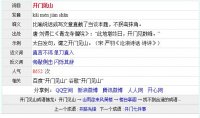Hi,
I found a couple of lists of 成语 flashcards.
Here and
Here
Both of them say to be the "must learn" chengyu for Chinese students. The thing is that they don't seem to include similar ones. So my question is, anyone who has studied any of these lists, do you recommend them? Which one should I choose? I don't want to begin studying chengyu that are not the most common ones.
Thanks
I found a couple of lists of 成语 flashcards.
Here and
Here
Both of them say to be the "must learn" chengyu for Chinese students. The thing is that they don't seem to include similar ones. So my question is, anyone who has studied any of these lists, do you recommend them? Which one should I choose? I don't want to begin studying chengyu that are not the most common ones.
Thanks


